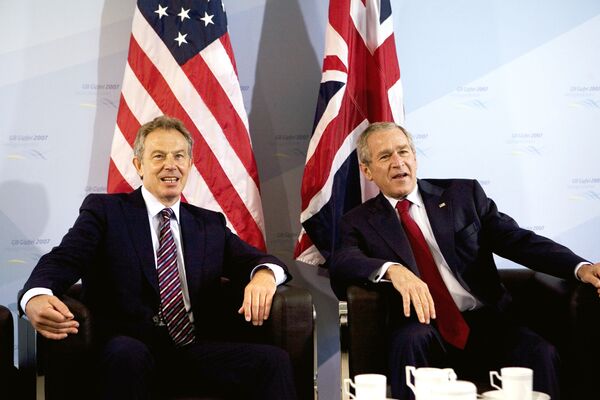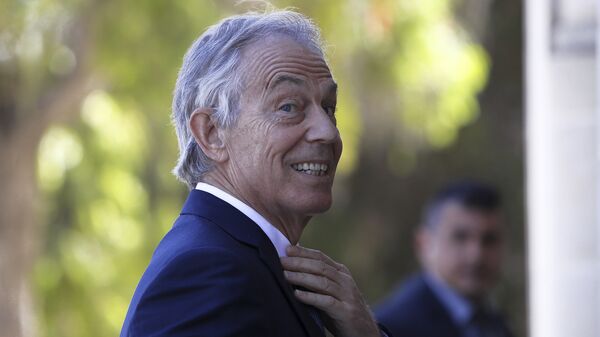The authorities in Syria, accused by NATO members of using chemical weapons on April 7, have rejected the reports and have reportedly invited the OPCW experts to probe the alleged attack.
READ MORE: Syria Invites OPCW to Probe Alleged Chemical Attack in E Ghouta — Reports
Speaking on BBC Radio 4's Today program, Mr. Blair discussed Britain's involvement in Syria. When asked whether Prime Minister Theresa May would need to ask Parliament before supporting the US in its military action against Syria, Mr. Blair "it is not strictly necessary."
"I think in circumstances when military action would be a form of air action rather than ground force action. I don't think, strictly, it is necessary."
Blair's remind of a certain time when Britain, as part of the US-led coalition, invaded Iraq in 2003 after accusing Saddam Hussein of possessing weapons of mass destruction, which, however, were never found.
In 2003 the invasion was launched without a UN mandate. It appears in 2018, Mr. Blair wouldn't mind absence of mandate by the government's very own parliament, which in 2013 voted against military intervention in Syria.
Tony Blair calls on the UK government to strike Syria without consulting parliament (which refused in 2013). According to the latest YouGov polling Mr. Blair's approval rating (4 Apr 2018) in the UK is minus 53%. For reference: Theresa May (30 Mar) —29%, Corbyn- 8, Assange —1.
— WikiLeaks (@wikileaks) April 10, 2018
Commenting on why there should be a difference between dropping a bomb and firing a shell, Mr. Blair said:
"Just because in practical terms, about the degree of commitment, most people feel that there is. I think this is something she [Theresa May] can consider. I think if the Americans are prepared to act fast, I think ourselves and probably the French Government would be in the same position. We should be supportive because it is important that — when chemical weapons are used in this way and the international community has taken a firm position against it — you have to enforce it."
Blair's eagerness to support international partners — especially with whom Britain upholds a 'special relationship' — in military interventions abroad based on flawed evidence, rings very loud bells.

The Inquiry also reported to the British public that "Britain decided to invade Iraq before the peaceful options for disarmament had been exhausted. Military action at that time was not a last resort. Britain's plans for post-invasion Iraq were 'wholly inadequate.'"
After the inquiry Mr. Blair issued an apology in an official statement, saying the decision to go to war in Iraq was the hardest, most momentous and agonizing in his career.
"The aftermath turned out more hostile, protracted and bloody than we ever imagined. The Coalition planned for one set of ground facts and encountered another," Blair added.
Fifteen years later and Mr. Blair is speaking about another "immensely difficult" decision — but now it's on Syria.
"If you put the other point of view and say let's do nothing then you are really giving carte blanche to the regime. It's not just about going to war with Russia. It is because of the difficulties of intervention. As I know, it is extremely difficult. But the problem is not intervention. It is also a policy with a consequence. Iraq shows you that intervening is extremely difficult."
It does indeed. It also shows that unlawful military intervention based on flawed assessments and underestimation of the consequences leads to thousands of deaths and political destabilization of the invaded state.


